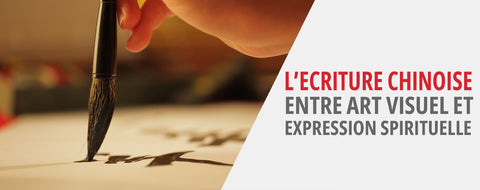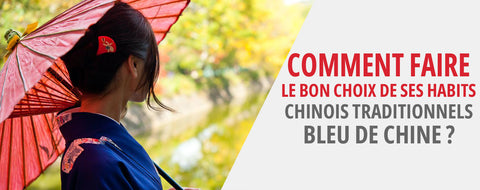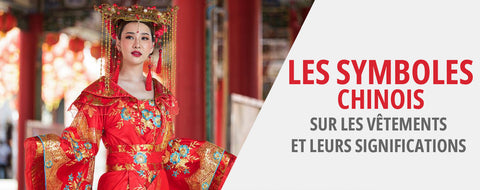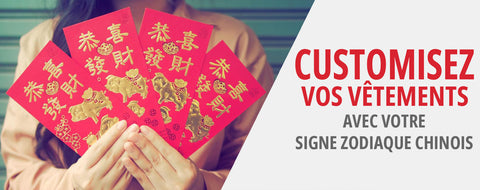
The Art of Chinese Feng Shui
reading - words
Feng Shui (风水) is a Chinese philosophy that is very popular in the West, as it is interesting in many ways. But did you know that this Chinese word literally means " wind and water " in Chinese? It is indeed a Chinese art based on the balance of objects and the five elements in space, in accordance with nature, whether it is housing, cities, architecture... The aim of this ancestral art is toharmonize energies, in order to promote well-being and vitality, in addition to providing a very Zen atmosphere.
History of Feng Shui
Feng Shui is an ancient art. Historians have found writings dating back to the Zhou Dynasty (1046-256 BC), which proved that the Chinese people sought to harmonize spaces based on soils and waterways. But it was during the Han Dynasty that the foundations of Feng Shui were created. At that time, the aim was to harmonize spaces and elements, that is to say, to take into account wind and water to bring balance to the space, hence the name "wind and water". The philosophy results from the knowledge Taoism, one of the three pillars of Chinese philosophy. Taoism, also the origin of acupuncture or traditional Chinese medicine, is based on the existence of a vital energy present in every part of the universe, which is called Qi, or Chi. By relying on this philosophy, Feng Shui therefore seeks to harmonize this energy in a spatial concept.

Principle of Feng Shui
As in any philosophy, there are several schools of thought in traditional Feng Shui. Feng Shui is therefore different, especially depending on geographical conditions. two currents The major schools of Feng Shui are the Xingshi school and the Liqi school. The Xinqxi school bases its architectural principles on positioning in relation to the mountain, water, and exposure to the sun. The Liqi school, on the other hand, bases its architecture on diagrams derived from astrology, and on the precepts of the book Yi Jing, also called the Book of Transformations. This is the oldest book of Taoist philosophy, and it describes the functioning of life on Earth.
Since Feng Shui is based on the natural balance of the universe, it is therefore based on the principle of Yin and Yang. Taoism associates Yin with a discreet, inactive energy, in the shadows, linked to the mountain. While Yang is a dynamic energy, in light, which is rather linked to water. This is why, to respect the perfect harmony of nature, one of the principles of Feng Shui is to support a building on the mountainside, but to face the waterways. In the same principle, a room will rather have a Yin energy, and an entrance a Yang energy.

In general, the idea of Feng Shui is to harmonize Yin and Yang, because an excess in one or the other would create an imbalance of the elements. Conversely, a perfect balance of Yin and Yang would allow Qi (气), the energy that circulates in the universe, to have a harmonious flow. Feng Shui is therefore a principle that has been, and still is, primordial in Chinese architecture, and many buildings are, even today, built according to its principles. In a city like Hong Kong, for example, Chinese culture values Feng Shui so much that only one of the many economic buildings and skyscrapers does not follow the principles of Feng Shui. In its design, the tower of the Bank of China has therefore sparked heated controversy because of its sharp angles and repeated cross motif. The other buildings are built by architects following the advice of a Feng Shui expert.
Feng Shui and Decoration
If architecture has a primordial place in the Feng Shui philosophy, this does not mean that interior decoration is left to chance. For example, for a Feng Shui bedroom, the bed must be away from doors and windows in order to balance the flow of energy.. But if it is true that we think above all about balancing our bedroom or living room according to the rules of Feng Shui, know that all the rooms of the house can be Feng Shui, even the bathroom !
But in addition to Qi, bad energies could circulate in the home, and it is therefore important to to move away. For a Feng Shui house, it is therefore necessary to use small objects lucky charm as a Feng Shui decoration to ward off evil spirits while attracting luck, good fortune, prosperity, and health.

For example, it is recommended to hang paintings representing harmonious landscapes, since Feng Shui is based on nature. Paintings of flowers, especially peonies, are also recommended. It is also advisable to decorate a room with a goldfish aquarium, to bring good fortune while allowing the proper circulation of nature's energies. statues representing Buddha, or Chinese deities are also highly recommended, and they will bring intense vibrations of positive energies to the home. However, to have the desired effect, they must be respected and venerated. In addition, you can indulge in some decorative baskets in natural and organic wood to enhance your feng shui atmosphere. Finally, in the continuity of a worship of nature, at the center of the natural balance of the universe, the Feng Shui philosophy recommends having green plants at home, on condition that they are respected, well maintained, and that they are not allowed to die, otherwise they will have the opposite effect and bring bad vibes to your home!




